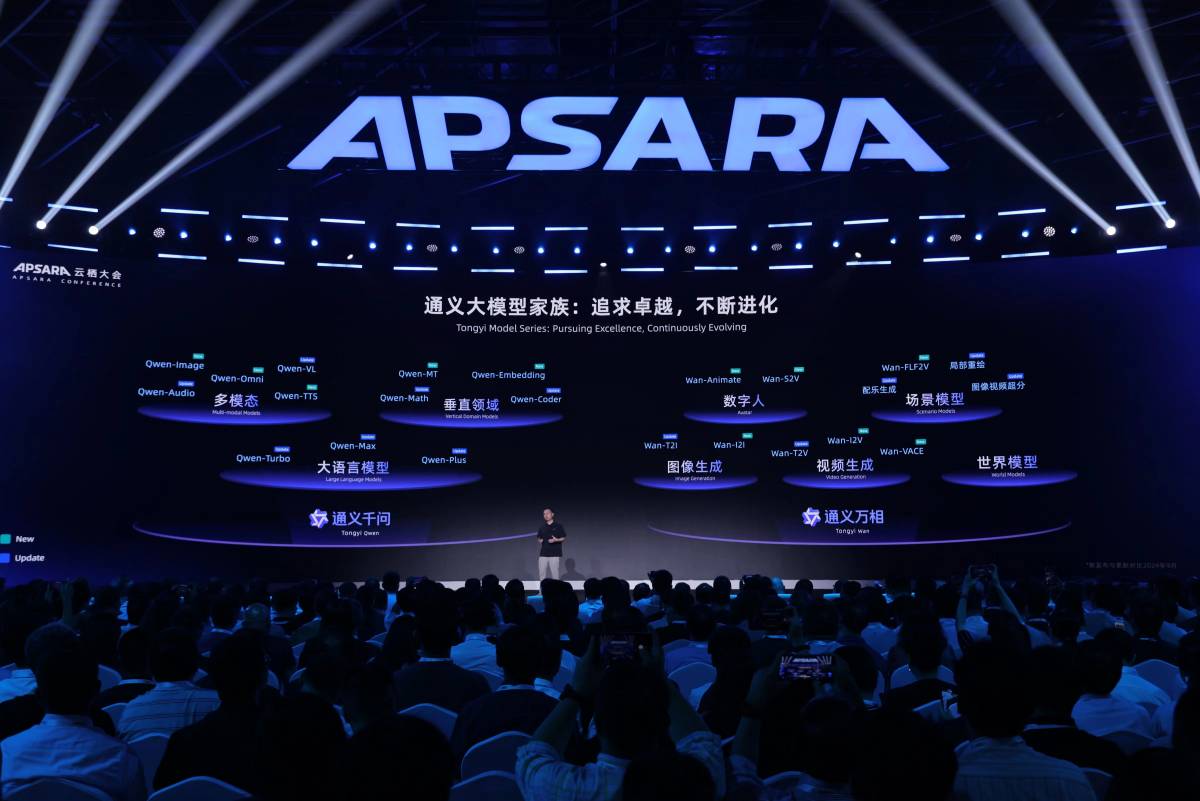
Fortune’s 2025 Change the World List has recognized Alibaba’s pioneering open-source commitment to making artificial intelligence accessible to developers, researchers and businesses worldwide. Alibaba’s 2025 recognition marks the most appearances by a Chinese tech company on the Change the World List, which spotlights companies that create a positive impact at scale through their core business operations.
Alibaba stands out for its bold decision to open-source its Qwen family of over 300 generative AI models, a strategy that runs counter to keeping advanced AI technologies proprietary.
In its citation, Fortune editors noted Alibaba’s contribution to economic empowerment recognizing that its open-source models are now among the most widely used worldwide. “By releasing AI models under an open-source model, either for free or at low rates, Alibaba is empowering startups, researchers, and hobbyists to experiment with this new technology without shelling out for expensive licensing fees. Chinese AI developers like Alibaba have now changed the conversation around AI, pushing U.S.-based competitors like OpenAI and xAI to release their own open-source models.”
The recognition centers on Alibaba’s Qwen series of large language models, first open-sourced in August 2023. Alibaba was one of the earliest major tech firms to make high-performing AI models freely available. Since then, the Qwen family has achieved significant global adoption, with over 600 million downloads and more than 170,000 derivative models created by developers worldwide. Over 1 million corporate and individual users have used Qwen on Model Studio, Alibaba’s AI development platform, since its launch.
Alibaba Group CEO Eddie Wu reinforced the company’s commitment to open source at its Apsara Conference 2025, the Group’s annual flagship technology conference on Wednesday in Hangzhou. “We remain committed to open-sourcing Qwen and shaping it into the ‘operating system of the AI era,’ empowering developers around the world to build transformative AI applications. “
A “Game Changer” for AI Adoption
Alibaba Group Chairman Joe Tsai previously articulated the company’s vision for open source, stating that it will be a “game changer” to proliferate applications and innovation.
Alibaba’s open-source strategy directly addresses what many consider one of technology’s most pressing challenges: access to powerful AI tools. By supporting 119 languages and dialects, Qwen models have enabled innovation in underserved markets where expensive usage fees for closed-source models would otherwise create barriers to entry.
Startups around the world are already making an impact with Alibaba’s open-source models. For example, by using Qwen’s models, the 15-person Korean agentic AI startup Univa avoided expensive licensing fees and reduced costs by 30%. “Without Qwen’s open-source alternative to the leading close-source models, we would not have been able to compete with larger companies”, said Nam MyungJin, CEO of Univa.
Meanwhile, Oxford University spinout OxValue.AI used Qwen’s multimodal models to deliver affordable, accurate company valuations in minutes. “Alibaba was the earliest leading company to open-source multimodal models and continued to improve its computing speed, which significantly expanded the information input and efficiency for company valuations”, said Xiong Peng, CEO of OxValue.AI.
To support its unwavering commitment to advancing AI technology, Alibaba announced in February a three-year $53 billion investment in cloud computing and AI infrastructure. The company is actively proceeding with these investments and planning to invest more.
Beyond individual success stories, Alibaba has fostered an ecosystem through ModelScope, China’s largest open-source AI community. The platform now serves over 18 million users and hosts 100,000 models, demonstrating the scale of Alibaba’s influence.
Researchers from academic institutions have embraced the accessibility of Qwen models, achieving breakthrough results that would have been prohibitively expensive with proprietary alternatives. Stanford University and the University of Washington used Qwen to develop their own top-performing models at a cost of under $50. UC Berkeley’s team trained an RL-based math model for under $30.
The company’s commitment extends beyond technology to education and collaboration. From hackathons in Singapore and Malaysia to partnerships with the International Telecommunication Union and participation in the UN’s AI Skills Coalition, Alibaba is actively working to ensure the benefits of AI reach underserved communities worldwide.
AI-driven Strategy Yielded Solid Progress
Fortune editors also noted that bridging the digital divide could be good for Alibaba’s business prospects. “Developers trained on Qwen will likely join Alibaba’s cloud ecosystem, an increasingly lucrative business for the tech company,” the magazine wrote.
Guided by a group-wide AI-driven strategy, the company’s “AI+ Cloud” value proposition has become increasingly compelling for enterprise clients. AI has emerged as a growth engine for Alibaba’s cloud business. In the quarter ending June 2025, cloud revenue grew 26% year-over-year, with AI-related revenue accounting for over 20% of revenue from external customers and continuing to grow at triple digits for the eighth consecutive quarter.
“The transformative impact of AI on all industries, combined with the deep integration of AI and cloud, will present the most significant opportunity in the technology sector over the next decade. For Alibaba, we have the world’s fourth-largest and Asia’s leading cloud infrastructure, along with full-stack technology capabilities spanning AI computing power, AI cloud platforms, AI models, an open-source ecosystem, and AI applications,” said Eddie Wu in the latest June quarter earnings call, outlining how Alibaba is well positioned to capture AI opportunities.
As AI continues to reshape industries and societies, Alibaba’s inclusion on Fortune’s Change the World list validates an approach that prioritizes accessibility alongside advancement. Alibaba’s commitment to open-source represents a distinct path forward in the AI era.
link




More Stories
Starbucks to close some US and UK stores
David Crisafulli stands by election commitments as mining companies criticise coal royalties in State of the State address
Businesses finding ways to thrive in Victoria’s downtown